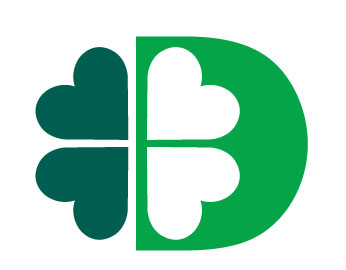Dravet syndrome is a rare form of epilepsy that appears in infancy and is a lifelong disease. Meiji Group has been a key supporter of patients in Japan.
Dravet syndrome is typically induced by fever in infants under one year of age. Estimated to affect just one in 20,000 to 40,000 people, the condition leads to convulsive as well as non-convulsive seizures and is not responsive to conventional epilepsy drugs.
A drug discovered by French firm Biocodex in 1978, has been shown to have some efficacy in the treatment of Dravet syndrome. The drug was launched in Japan in 2012 by Meiji Seika Pharma, a company with a long history in the field of pediatric diseases.
Dravet syndrome, a rare disease in infants
The nerve cells in the brain operate electrically in a regular rhythm. Epilepsy occurs when this activity is suddenly disrupted, resulting in severe electrical disturbances. The condition occurs in all age groups, from infancy to old age, with the highest incidence occurring under the age of three, and 80% of cases occurring before the age of 18.
Because Dravet syndrome affects just one out of 20,000 to 40,000 people, it is one of the rarest forms of epilepsy. The long-term prognosis is often poor, with persistent seizures and severe cognitive impairment.
Seizures caused by Dravet syndrome are highly refractory during the first few years of life, failing to respond to all treatments and resulting in frequent hospitalization. There may be associated delays in the development of intelligence and motor skills in infancy. Because the seizures are triggered by heat and light that are a part of daily life, family members and caregivers must be constantly vigilant. Seizures inevitably do occur, so it is important to have an effective drug to control them. Prior to the discovery of Stiripentol, various antiepileptic drugs were investigated, but no useful results were obtained.
The launch in Japan
The drug commercialized can suppress the seizures caused by Dravet syndrome and was approved for this use in Europe in 2007. The drug's efficacy became known to Japanese doctors and epilepsy patients, of whom around 3,000 are estimated to suffer from Dravet syndrome.
Meiji Seika Pharma had expertise in pediatric clinical trials and in the development of central nervous system drugs such as anxiolytics and antidepressants, but had no experience in the development of antiepileptic drugs. The company sought out Japanese doctors who had conducted prior clinical studies and began the process of getting the drug approved for use in Japan.
The 2012 launch of the drug in Japan provoked a flurry of interest from doctors seeking to prescribe the drug, even before it was officially adopted by hospitals. In light of the special nature of Dravet syndrome and the unique usage and potential side effects of the new drug, Meiji Seika Pharma abandoned its usual sales approach, instead setting up a team of specialist advisors across its network of offices in Japan.
A unique challenge for the pharmaceutical industry
In clinical trials, Meiji Seika Pharma relied heavily on the consent and support of patients and their families. Many had been living with Dravet syndrome for years with no effective treatment. One family member recalls, "We used to take a taxi to hospital at least four times a week after epileptic seizures, so I eventually bought a car. But now that we use the drug, we almost never visit the hospital due to seizures."
The treatment of rare conditions like Dravet syndrome presents a unique challenge for the pharmaceutical industry. Unlike widespread conditions like Alzheimer's, there is little profitability in treating rare diseases, so companies must be selective in choosing where to allocate their resources for drug development. The Meiji Group has a longstanding interest in the welfare of infants and children, being a manufacturer of infant formula and treatments for various pediatric infectious diseases. Dravet syndrome, which manifests in infancy, was therefore a natural choice.
Meiji Seika Pharma maintains a close relationship with patients and their families in order to learn firsthand of the various conditions of Dravet syndrome. The company also gathers information from epilepsy specialists in order to recommend optimal prescriptions for individual patients.

The drug uses this image of a clover for its association with happiness and good luck and to symbolize the connecting of hands of the patient, family and doctor.


